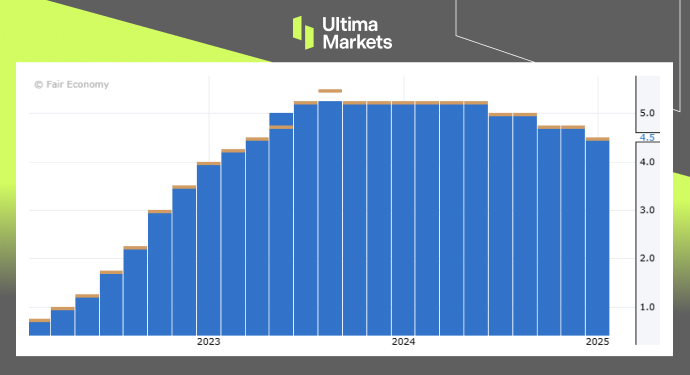Important Information
This website is managed by Ultima Markets’ international entities, and it’s important to emphasise that they are not subject to regulation by the FCA in the UK. Therefore, you must understand that you will not have the FCA’s protection when investing through this website – for example:
- You will not be guaranteed Negative Balance Protection
- You will not be protected by FCA’s leverage restrictions
- You will not have the right to settle disputes via the Financial Ombudsman Service (FOS)
- You will not be protected by Financial Services Compensation Scheme (FSCS)
- Any monies deposited will not be afforded the protection required under the FCA Client Assets Sourcebook. The level of protection for your funds will be determined by the regulations of the relevant local regulator.
Note: UK clients are kindly invited to visit https://www.ultima-markets.co.uk/. Ultima Markets UK expects to begin onboarding UK clients in accordance with FCA regulatory requirements in 2026.
If you would like to proceed and visit this website, you acknowledge and confirm the following:
- 1.The website is owned by Ultima Markets’ international entities and not by Ultima Markets UK Ltd, which is regulated by the FCA.
- 2.Ultima Markets Limited, or any of the Ultima Markets international entities, are neither based in the UK nor licensed by the FCA.
- 3.You are accessing the website at your own initiative and have not been solicited by Ultima Markets Limited in any way.
- 4.Investing through this website does not grant you the protections provided by the FCA.
- 5.Should you choose to invest through this website or with any of the international Ultima Markets entities, you will be subject to the rules and regulations of the relevant international regulatory authorities, not the FCA.
Ultima Markets wants to make it clear that we are duly licensed and authorised to offer the services and financial derivative products listed on our website. Individuals accessing this website and registering a trading account do so entirely of their own volition and without prior solicitation.
By confirming your decision to proceed with entering the website, you hereby affirm that this decision was solely initiated by you, and no solicitation has been made by any Ultima Markets entity.
I confirm my intention to proceed and enter this website Please direct me to the website operated by Ultima Markets , regulated by the FCA in the United Kingdom
Ultima Markets App
Trade Anytime, Anywhere

Mann Signals Caution Despite Bold Rate Cut Move
BoE’s Mann Clarifies Surprise Rate Cut Vote
Bank of England policymaker Catherine Mann clarified on Tuesday that her unexpected vote last week for a 50 basis-point rate cut should not be interpreted as support for a series of reductions or an indication that she would take the same stance in March. While her decision surprised investors, it aligned with her generally proactive approach, in contrast to the more measured, step-by-step strategy preferred by most members of the BoE’s Monetary Policy Committee.

(Bank of England’s Bank Rate, Source: Forex Factory)
Speaking on Tuesday, Mann reaffirmed her belief in maintaining restrictive monetary policy and estimated that the long-term neutral interest rate for the UK would likely be at the upper end of the 3.0-3.5% range identified in a BoE investor survey. Her outlook differs from that of Swati Dhingra, another Monetary Policy Committee member who also supported a 50 basis-point cut who has consistently advocated for looser monetary policy.
Mann explained that, until now, she had favored keeping rates unchanged due to structural weaknesses in the UK economy that contribute to inflationary pressures. She pushed back against the idea that her vote signaled support for back-to-back cuts, stating: “Those structural impediments continue to be in evidence in this economy, and so the notion that somehow I support ’50 now, 50 next time’, that would not be a full reading of what I have just said.”
However, she ultimately shifted her stance after seeing enough signs of weakening consumer demand, a potential sharp downturn in the labor market, and declining corporate pricing power, leading her to drop her opposition to cutting rates.
Disclaimer
Comments, news, research, analysis, price, and all information contained in the article only serve as general information for readers and do not suggest any advice. Ultima Markets has taken reasonable measures to provide up-to-date information, but cannot guarantee accuracy, and may modify without notice. Ultima Markets will not be responsible for any loss incurred due to the application of the information provided.
Why Trade Metals & Commodities with Ultima Markets?
Ultima Markets provides the foremost competitive cost and exchange environment for prevalent commodities worldwide.
Start TradingMonitoring the market on the go
Markets are susceptible to changes in supply and demand
Attractive to investors only interested in price speculation
Deep and diverse liquidity with no hidden fees
No dealing desk and no requotes
Fast execution via Equinix NY4 server









